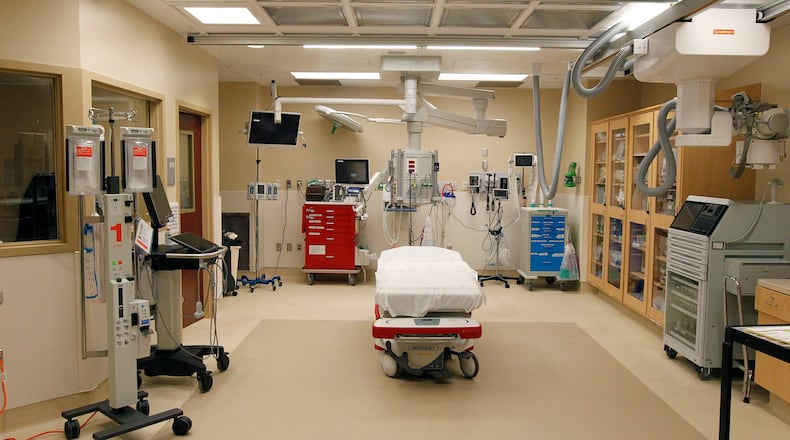This includes A grades for five hospitals, one B and five Cs.
Leah Binder, president and CEO of The Leapfrog Group, said when the grades were released Nov. 10 that as the pandemic continues, there’s heightened awareness of the importance of hospitals in communities and people’s lives.
“It is critical that all hospitals put patient safety first. Now we have more information on more hospitals than ever before, so people can protect themselves and their families,” Binder said.
Nationally, 32% of hospitals received an “A,” 26% received a “B,” 35% received a “C,” 7% received a “D,” and less than 1% received an “F.” Specialty hospitals, children’s hospitals and critical access hospitals aren’t included, so Dayton Children’s Hospital and the Dayton VA Medical Center aren’t on the list.
The grades were also expanded this time to also consider post-operative sepsis, kidney injury, and blood leakage. Grades can be searched at HospitalSafetyGrade.org.
Leapfrog recommends their grades be used as guidance in situations like if referred to a hospital for surgery, if preparing to have a baby, if a chronic illness could require hospital care, or if someone’s choice of a hospital is based on solely on location or word-of-mouth.
The organization says consumers can also look to see which hospitals have received A rankings consistently over the years.
One limit to grading system is the different factors used to grade the hospitals are measured over a variety of time frames, and all of the measurements are reported a delay, sometimes by years.
“I think from a patient perspective, it’s directional, but if you want to know what’s going on in the hospital that you’re going to today, this isn’t going to tell you that story,” said Kettering Health Brenda Kuhn, chief clinical officer for the network.
Kuhn said she’d recommend patients talk to physicians that practice in the area, because they are going to be aware of an organization’s safety practices.
Kettering Health received As for its hospitals, except Grandview and Southview, which received Cs. Kuhn said they were disappointed the hospitals barely missed a B grade.
“We are constantly looking at where we have the opportunities related to quality for all of our facilities and the goal would be that no matter what slice of data, no matter what time period, that we are consistently an A,” Kuhn said.
Dayton-based Premier Health operates Miami Valley Hospital, Miami Valley Hospital North and South, Atrium Medical Center and Upper Valley Medical Center.
The hospital network said in a statement that quality care and a great patient experience “are at the core of our mission, vision, and values at Premier Health, and we take feedback like this seriously.”
The network also noted that results can vary from one survey to the next and from one year to the next.
“We saw significant improvement in several of our hospitals’ scores this year, and Upper Valley Medical Center received an “A” grade,” Premier stated.
About the Author

